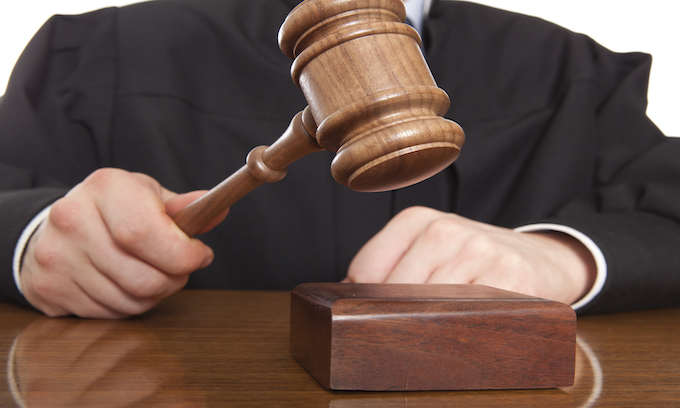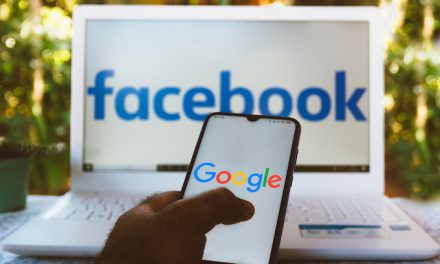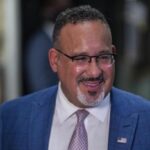Have you read, heard or seen that important news story about an Asian American federal judge — born in Taiwan and subject to discrimination growing up — who confronted and denounced those who discriminate by race?
No?
With all that’s been in the news lately about terrible anti-Asian attacks, with many pundits engaging, isn’t it odd that the stirring congressional testimony of an Asian American federal judge on a hot-button topic wouldn’t receive widespread national media attention?
His name is James C. Ho. He was born in Taipei, came to America as a toddler and graduated with honors from Stanford University and with high honors from the University of Chicago Law School. He is on the 5th Circuit Court of Appeals, based in Louisiana.
Ho recently testified in a House Judiciary Committee hearing called by U.S. Rep. Ted Lieu, a California Democrat, on the lack of racial diversity on the federal bench.
Ho suggests what many Asian Americans believe to be true in their bones, that the reason for that disparity is generations of discrimination at the nation’s most prestigious universities.
In his testimony, Ho told a story common to many of us from immigrant families.
“Most kids grow up learning English from their parents,” he said. “I grew up learning English from a bunch of puppets, from a place called Sesame Street. My classmates brought a kids’ lunch box to school. I brought a bento box to school. My food seemed normal to me. But it smelled funny to my classmates — or so they would tell me. And I remember racial slurs and jokes on the playground and on the football field.
“But I also learned that, if you work hard and prove yourself, you can find your place in America.”
Judge Ho still experiences racist hate. He says racism isn’t over. Yet he understands the dangers of categorizing, dividing, rewarding or punishing Americans by the use of immutable characteristics like skin pigment.
This is the definition of racism. This is what racists do.
He argues that equality of opportunity, not of outcomes, is fundamental to who we are as Americans.
He also argues that the new policy of “equity” pushed by the Democratic Party — that attempts to guarantee outcomes on the basis of race — is poisonous and racist.
Equality of opportunity, said Ho, means two things:
“It means we must do everything we can to ensure that everyone truly has the opportunity to succeed. And it means we must never bend the rules to favor anyone. Dr. King had it right: Choose people based on who they are, not what they look like.
“We must make sure that everyone has the opportunity to learn and to succeed, so that win, lose or draw, at least you got a chance — no matter who you are …
“But here’s the kicker: Once everyone has had full and fair opportunity to be considered, you pick on the merits. Both the Constitution and the Civil Rights Act make it clear that it is wrong to hire people based on race. That’s the law for a wide range of jobs. But it would be especially wrong to select judges based on race.”
Ho is the only Asian American on his court. He is the only immigrant on his court.
“But I would never suggest that a wise Asian would, more often than not, reach a better conclusion than a white judge,” he said. “That would be antithetical to our legal system and poisonous to civil society. No one should ever assume that I’m more likely to favor Asians or immigrants or anyone else — or that my colleagues are less likely to. Everyone should win or lose based on the law, period. That’s why Lady Justice wears a blindfold. That’s why judges wear black robes.”
Stop and consider how quickly we’re being herded down this poisonous path where “equality” is replaced by “equity.” The similar-sounding words are offered up, confusingly, on a regular basis without context in “straight” news media accounts and by Democratic Party politicians as if they were one and the same.
They’re not the same. Only one is about opportunity for all, which is why a poor immigrant from postwar Europe, who plowed his fields with a mule, could see one of his American-born sons rise in government service and another become a newspaper columnist. It is why Judge Ho’s parents came to America.
In high school, Ho’s college admissions adviser told him that his grades and test scores were “all strong enough to get me into my top choice of schools — if I wasn’t Asian.”
“I come to my views because racism is not behind us,” he said. “The last thing we should do is divide people by race. The last thing we should do is suggest the racists are right. We don’t achieve equality of opportunity by denying it to anyone — we achieve it by securing it for everyone.
“So make no mistake: It would be profoundly offensive — and un-American — to tell the world you’re restricting a judgeship to members of only one race. It’s offensive to people of other races. And it’s offensive to people of that race because you’re suggesting the only way they’ll get the job is if you rig the rules in their favor.”
Ho is a conservative. If you didn’t read about his comments in the news or hear or see them on radio or TV, you might want to ask yourself: Why not?
Is it the message or the messenger?
It just might be both.
___
(c)2021 the Chicago Tribune
Visit the Chicago Tribune at www.chicagotribune.com
Distributed by Tribune Content Agency, LLC.
—-
This content is published through a licensing agreement with Acquire Media using its NewsEdge technology.



















“ We don’t achieve equality of opportunity by denying it to anyone — we achieve it by securing it for everyone.“
James C. Ho
Amen
He also argues that the new policy of “equity” pushed by the Democratic Party — that attempts to guarantee outcomes on the basis of race — is poisonous and racist.
We ALL need to wake up and understand that the Democrat Party’s intention in all things is Power, Rule and Control over the People.
The Democrat Party’s game plan was to lie, cheat and steal elections in order to control the American people and bring American commerce to its knees.
Then access power and retain it by any means available –
no matter the costs to the people, the government or the nation. 👿
THE leftists mantra is “Equality of OUTCOME”, whether they deserve it or not.
Choosing winners and losers not by performance results but skin color is rigging the system against human normalcy every bit as allowing men who imagine themselves as women to compete in woman’s sports. It is the mediocre gentrification of abnormal over normal to redefine it as the new norm or middle-class middle of the road compromise, where small men seek to play big God and collectively manipulate the lives of exceptional people down to their own level of smallness, and recreate the world in their own distorted images, all the while removing the blindfold off a socially reindoctrinated lady Justice and force her to see true Justice only through their own racially distorted eyes.
James C. Ho, if all of America is so racist, how did you become a Judge? Case closed and I am not a lawyer.
You might want to read the article. Judge Ho isn’t saying America is racist.
Leonidas, My Bad!!!!!!
Apology accepted. Now drop and give me 20 burpies! 😉
Packer, that’s NOT what Ho was on about…
“Ho is a conservative. If you didn’t read about his comments in the news or hear or see them on radio or TV, you might want to ask yourself: Why not? Is it the message or the messenger?”
Of course it is the message – the message does not follow the narrative of the Left. His appearance in the hearing indicates to me that moron Rep. Ted Lieu (D-CA) did not bother checking Judge Ho’s record or opinions or public comments before having him appear as a “messenger” before the House Judiciary Committee which was obviously intended to promote the narrative of “White Supremacy” in any all things.
Regarding this narrative, I feel that the only prejudice toward Asian Americans is jealousy of their work ethic which Americans used to have in great quantities. Asian kids are the HS Valedictorians and the Summa cum Laud graduates while the White and Black kids are all about dating, parties and Spring Break Baby!!
YOU WILL BE assimilated, Individuality will be eliminated. Only the collective exists… WE ARE THE LEFT!